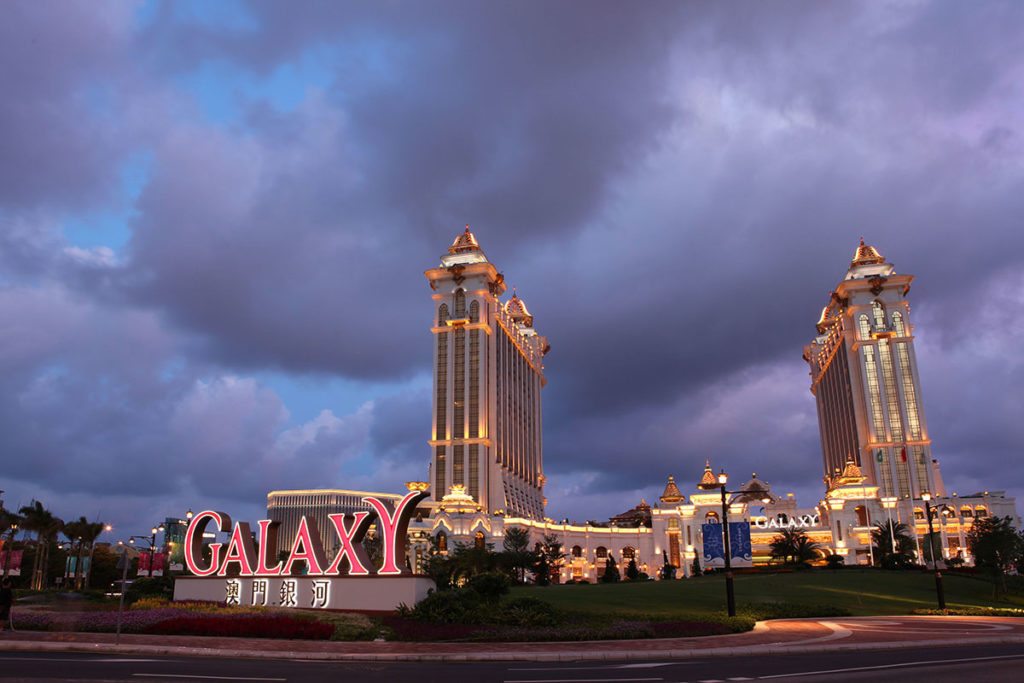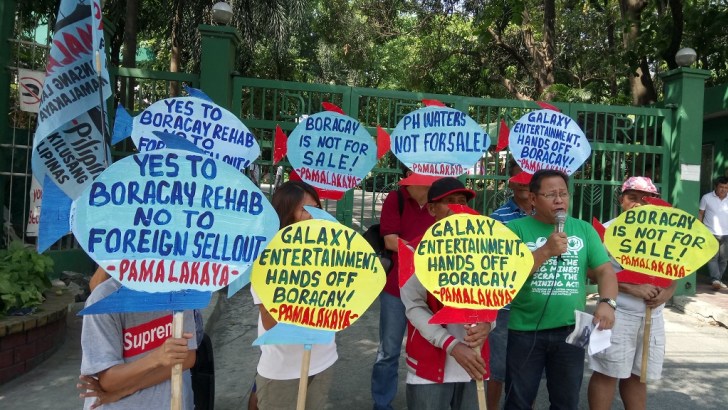The only bigger mess than the green algae which pollutes Boracay Island is the uncertainty over its future.
Once the top draw of Philippine tourism, its white-sand beaches could potentially be closed-off to guests for a year. This after President Rodrigo Duterte labelled the island as a “cesspool”, due to the environmental problems it has been experiencing for years, and is seriously considering restricting access to the island to rehabilitate it.
The move appeared pro-environment at first, the easing of Boracay’s congestion was a solution endorsed by environmentalists also. However, the President’s motives have been deeply questioned after he also announced the construction of a US$500 million “mega casino” on the island itself.

Galaxy Entertainment Group Ltd., a prominent casino operator headquartered in Macau, obtained the go signal from the Duterte government to invest half a billion dollars in an integrated casino and resort hotel on 23-hectares of green space in the island. Not only will it tarnish the laid-back, family-friendly atmosphere that Boracay is known for – it will further add to the over-development of the island and rob it of its few remaining natural settings.
The urbanization of Boracay has transformed it from a tropical paradise get-away, to another urban jungle. The plethora of commercial establishments on the island, most of which dump untreated wastewater into its pristine waters, have been pinpointed as the culprits behind its environmental problems.

By adding another commercial site on the island, much more one that is as massive as this proposed “mega casino”, it really begs to be asked how the President plans to solve Boracay’s woes.
If the proposed closure of the island is intended to allow nature to recuperate, why allow such a large-scale construction to take place? The transporting of heavy equipment, the arrival of an army of labourers and the actual construction of the structure itself will all take their toll on what’s left of Boracay’s natural environment.
Even Duterte’s own environmental chief, DENR secretary Roy Cimatu, admits that the construction of the mega casino was “contradictory” to the administration’s proposal to allow Boracay’s rehabilitation. Another Cabinet official, local government secretary Eduardo Año, went as far as to say that he “disagreed” with the plan to build the mega casino.

It also seems very unfair that the business establishments in the island already will be forced to shutdown, meanwhile this foreign corporation will be permitted to conduct its own operations. It is estimated that even a nine-month shutdown would result in the loss of Php56 billion in revenues and would cull 36,000 jobs, while the government stands to lose Php6.7 billion in tax revenues also.
By allowing the construction to go ahead, the economy loses, the environment suffers and Duterte’s alleged plan to restore Boracay’s natural beauty becomes obsolete. The only winner in this entire fiasco is the Galaxy Entertainment group, who surely will profit from the Philippines’ burgeoning gaming industry.
So what exactly is the President planning to achieve by closing down Boracay yet allowing the construction of this behemoth of a casino? For a man who boasts to know how to get things done, Duterte seems like a headless chicken on what to do with the tourist island.
One of the incumbent administration’s fiercest critic, Bayan Muna Rep. Carlos Zarate, postulated that the closure might only be a “smokescreen to allow the casino to be built”. That theory seems to hold up, given the vast contradictions and inconsistencies in the government’s plans.
This is an ongoing saga that is getting as murky as Boracay’s waters these days, but hopefully we get answers as clear as Boracay’s waters once was.

